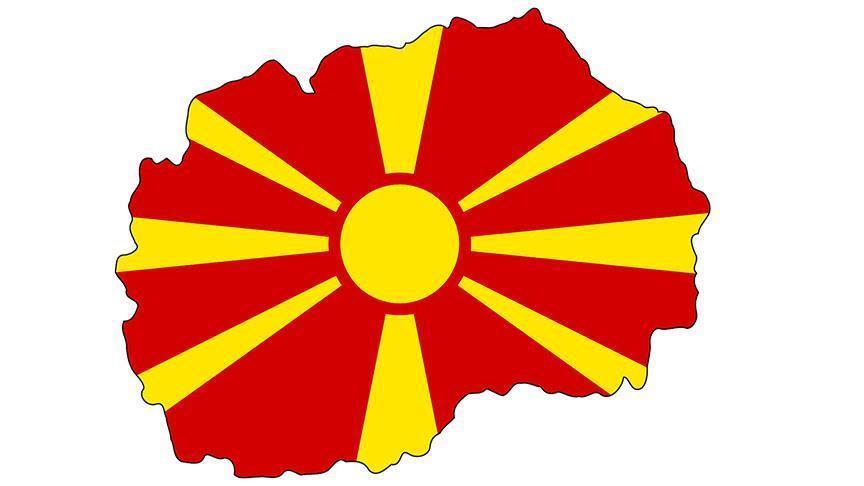
By Furkan Naci Top
ATHENS
Greece has resolved a long-standing dispute with its northern neighbor, which is set to change its name from Macedonia to the Republic of Northern Macedonia, Greek Prime Minister Alexis Tsipras said Tuesday.
Tsipras met with Greek President Prokopis Pavlopoulos after he spoke with his Macedonian counterpart Zoran Zaev over the phone.
"We have recently reached an agreement with the prime minister of the former Yugoslav Republic of Macedonia (FYROM), which has put us in turmoil for many years," Tsipras said.
"We have reached a good agreement that meets all our conditions," he added.
He said that after Macedonia’s Constitution makes the name change official, Greece’s parliament will approve the deal.
Greece, which is both a NATO and EU member, has long opposed the official name of its northern neighbor, noting there is a region in northern Greece also called Macedonia.
Due to Greece’s veto power, the dispute has been one of the main hurdles to Macedonia’s ambitions to join NATO and the EU.
Negotiations between Macedonia and Greece have stepped up recently, as the new government in Skopje has sought progress in its bid to join NATO and the EU.
Despite the dispute between Athens and Skopje, many countries, including Turkey, recognize Macedonia's present name.
- UN, NATO and EU reactions
UN Secretary General Antonio Guterres "is convinced that the resolution of this long-standing dispute will have positive repercussions in Europe and beyond and hopes that parties to other protracted conflicts may be inspired by this development," his spokesman, Stephane Dujarric, said in a statement.
Guterres "commends the parties for their determination to bring this long-standing dispute to an end" and urged "all citizens in both countries to come together to move the process forward", Dujarric said.
Guterres' personal envoy for the dispute, Matthew Nimetz, "warmly" welcomed the resolution earlier Tuesday, saying he has "no doubt this agreement will lead to a period of enhanced relations between the two neighboring [sic] countries."
NATO Secretary General Jens Stoltenberg also welcomed the agreement.
"This historic agreement is testament to many years of patient diplomacy and to the willingness of these two leaders to solve a dispute which has affected the region for too long,” he said.
"This will set Skopje on its path to NATO membership."
He added that the move will help consolidate peace and stability across the Western Balkans.
Additionally, in a joint statement, EU foreign policy chief Federica Mogherini and European Commissioner for Enlargement and Neighborhood Policy Johannes Hahn “wholeheartedly” congratulated Tsipras and Zaev for the historic agreement.
“The negotiating process under the auspices of the United Nations and the mediation of the personal envoy of the UNSG, Matthew Nimetz, and with the EU's strong support, is also clear proof of the power of multilateral diplomacy, dialogue, respect and willingness to find win-win solutions to even the most difficult of issues,” the statement said.
“The European Union encouraged and supported the negotiations from their very beginning. We will now accompany the next steps with all our means in the same spirit of dialogue for our common European future,” it said.
- Macedonia
At a press conference, Macedonia’s Zaev said: “We have made a great friendship by solving the problem between Greece and Macedonia,” adding, “This is a centennial solution.”
“The agreement should be ratified by Macedonia’s parliament after the two governments sign the agreement.”
After parliament’s confirmation, he said, Greece will send a letter to NATO saying that “there is no longer a problem between the two countries and that there is no obstacle to Macedonia receiving a NATO membership invitation”.
"Greece will send a letter to the European Council for Macedonia entering into EU membership negotiations.
"I believe the European Council will make a decision to enter into Macedonia's EU membership negotiations on June 28" at an EU summit, Zaev said.
"Macedonia will receive a full membership invitation at the NATO Summit in Brussels on July 12," Zaev predicted. "The final decision in this respect will be given by the public in a referendum this fall."
*Michael Hernandez contributed to this story from Washington





